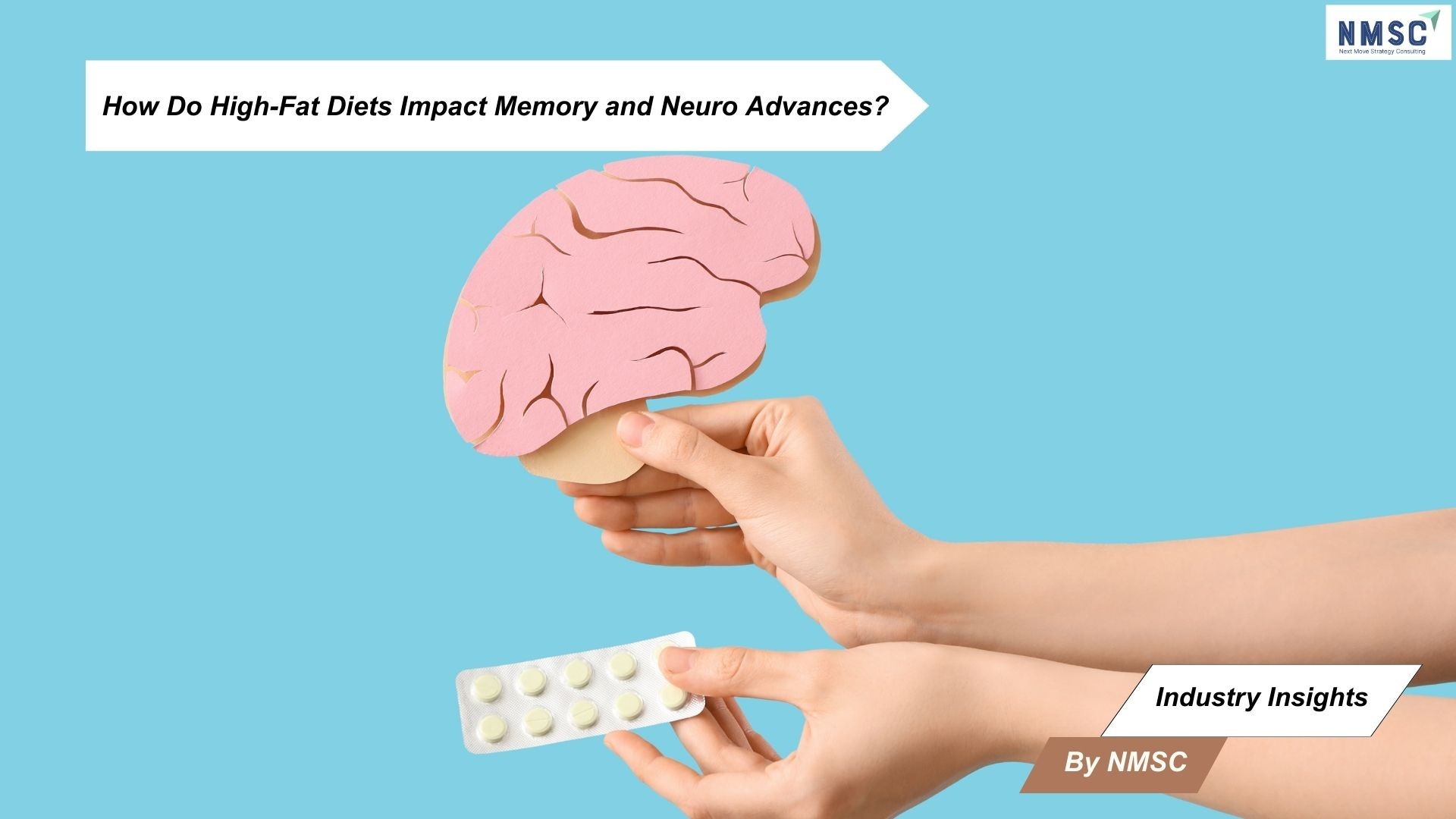How Do High-Fat Diets Impact Memory and Neuro Advances?
Published: 2025-09-24

Industry Insights from Next Move Strategy Consulting
Amid rising prevalence of metabolic syndrome and its ties to cognitive impairments, a recent mouse study unveils a critical neurological pathway explaining how high-fat diets impair memory, offering fresh perspectives on preventing neurodegenerative conditions such as Alzheimer's disease.
Uncovering a Hidden Neurological Pathway
Metabolic syndrome, characterized by factors like elevated abdominal fat, high triglycerides, reduced HDL cholesterol, elevated blood sugar, and hypertension, has long been connected to memory deficits and heightened risks of neurodegenerative diseases. This new research delves into the dentate gyrus within the hippocampus, pinpointing how short-term high-fat diets disrupt neural activity essential for new memory encoding.
“These findings reveal a previously unrecognized mechanism by which dietary metabolic stress disrupts hippocampal function and highlight DG CCK-INs and PKM2 as promising therapeutic targets for preventing cognitive decline associated with metabolic disorders,” the study authors noted.
Key Insights at a Glance:
-
High-fat diets trigger overactivity in cholecystokinin-expressing interneurons (CCK-INs) in the dentate gyrus, leading to memory impairments within days.
-
Increased pyruvate kinase M2 (PKM2) enzyme activity disrupts energy production, preventing normal glucose inhibition of CCK-INs.
-
Reintroducing glucose or inhibiting PKM2 restores CCK-IN function, reversing or preventing memory deficits.
-
Periods of fasting can mitigate these effects, suggesting dietary interventions as supportive measures.
-
Links to broader risks, including type 2 diabetes accelerating brain aging and elevating Alzheimer's susceptibility through multiple organ impacts.
Adaptable Strategies for Brain Health Protection
This mechanism emphasizes the brain's sensitivity to dietary fuel, where high-fat intake rapidly alters mitochondrial energy processes, fostering conditions conducive to cognitive decline. By targeting PKM2 and CCK-INs, interventions could foster resilience against metabolic disruptions, aiding in the management of neurodegenerative progression.
As metabolic syndrome affects growing populations, these discoveries promote proactive approaches, integrating dietary adjustments with potential pharmacological tools to maintain hippocampal integrity and curb risks like dementia.
Market Implications & Forward-Looking Analysis: Next Move Strategy Consulting's View
This breakthrough is poised to invigorate the Neurodegenerative Diseases Drugs Market by identifying PKM2 as a viable target for novel therapies, potentially expanding treatment options beyond traditional symptom management to address root metabolic causes. As a market research firm, Next Move Strategy Consulting anticipates heightened R&D investments in drugs modulating energy pathways, which could accelerate market growth by tackling the intersection of metabolic and neurological health, ultimately benefiting patients through earlier interventions and reduced disease burden.
Emerging mechanisms like those involving PKM2 are driving shifts in pharmaceutical priorities, with greater focus on integrated solutions for metabolic-linked neurodegeneration.
Pioneering Paths in Neurodegenerative Care
In an era of escalating metabolic challenges, this study on high-fat diets and memory underscores the urgency of innovative strategies, where metabolic modulation becomes central to safeguarding cognitive function.
Through such advancements, the field advances toward comprehensive protections against neurodegenerative threats, empowering better outcomes in brain health amid dietary and lifestyle influences.
Source: Medical News Today
Prepared by: Next Move Strategy Consulting
About the Author
 Sneha Chakraborty, a skilled SEO Executive and Content Writer with over 4 years in digital marketing, excels in boosting online visibility and engagement with data-driven strategies and compelling content. Passionate about simplifying digital ideas, she enjoys reading, sketching, and nature photography.
Sneha Chakraborty, a skilled SEO Executive and Content Writer with over 4 years in digital marketing, excels in boosting online visibility and engagement with data-driven strategies and compelling content. Passionate about simplifying digital ideas, she enjoys reading, sketching, and nature photography.
About the Reviewer
 Sanyukta Deb is a skilled Content Writer and Digital Marketing Team Leader, specializing in online visibility strategies and data-driven campaigns. She excels at creating audience-focused content that boosts brand presence and engagement, while also pursuing creative projects and design interests.
Sanyukta Deb is a skilled Content Writer and Digital Marketing Team Leader, specializing in online visibility strategies and data-driven campaigns. She excels at creating audience-focused content that boosts brand presence and engagement, while also pursuing creative projects and design interests.
















Add Comment